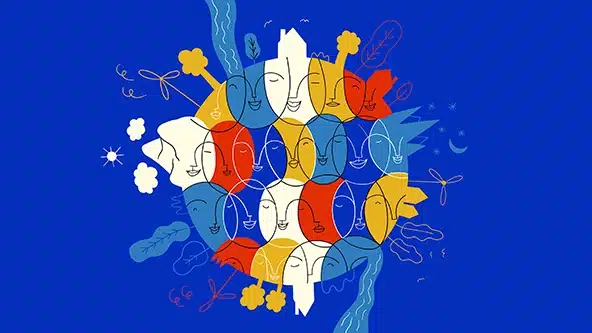Well-being of People and Planet Must Be Central Metric to Policy Actions

Thank you for attending the Member States Briefing on Beyond Gross Domestic Product (GDP), co-led by UN Deputy Secretary-General Amina Mohammed and Under-Secretary-General Guy Ryder. This initiative aims to reshape how we measure prosperity by addressing the limitations of GDP as a sole indicator of well-being. The briefing highlighted the urgent need for a more comprehensive approach to development metrics that considers social and environmental factors alongside economic growth.
Understanding the Need for Change
During her opening remarks, Amina Mohammed emphasized the necessity of the Beyond GDP project. She referenced a Policy Brief by the Secretary-General, which described the reliance on GDP as a “harmful anachronism” in global policymaking. This reliance often overlooks critical aspects of human well-being and tends to value activities that may be detrimental to both people and the planet. Mohammed pointed out that while GDP is a common measure of prosperity, it fails to provide a complete picture of sustainable development.
The consequences of this oversight are evident in daily life, as the world grapples with issues like climate change, biodiversity loss, and rising inequalities. The historical context of this initiative dates back to the 1960s, with notable figures like Bobby Kennedy highlighting the inadequacies of GDP in capturing the true essence of national progress. His poignant remarks from 1968 resonate even more today, underscoring the need for metrics that reflect the health, education, and overall happiness of populations rather than merely economic transactions.
Proposed Solutions for Sustainable Development
In addressing the second question regarding solutions, Mohammed outlined the importance of placing the well-being of people and the planet at the forefront of measurement and valuation. To achieve a balanced approach to sustainable development, it is crucial to promote metrics that complement GDP. This shift would allow for a broader data set to inform policy decisions and government actions.
The UN has a wealth of prior work to draw upon, including the Human Development Index developed by UNDP, which offers a more nuanced view of progress by integrating social and economic dimensions. Additionally, the Sustainable Development Goals (SDGs) provide a robust framework of indicators that can be utilized to enhance our understanding of development beyond mere economic growth.
Member States have also made strides in expanding the metrics available to policymakers, learning from successful initiatives that broaden the scope of measurement. Recent advancements in data collection, particularly in areas like environmental accounting and subjective well-being, further enhance our capacity to capture what truly matters in society.
The UN’s Role in Advancing Beyond GDP Metrics
The United Nations is uniquely positioned to lead this transformative effort. As the global steward of the sustainable development agenda, the UN plays a vital role in promoting the three dimensions of sustainable development: economic, social, and environmental. The organization is also responsible for establishing norms and standards for the use of common statistics across nations.
Sustainable Development Goal 17 specifically includes a commitment to developing Beyond GDP metrics by 2030, a goal that this initiative aims to fulfill. By facilitating collaboration among member states and leveraging existing frameworks, the UN can help create a more holistic approach to measuring progress.
As the briefing concluded, Amina Mohammed handed over to Under-Secretary-General Guy Ryder, who will elaborate on the next steps for advancing this critical agenda. The collective efforts of the UN and its member states are essential to ensure that future development metrics reflect the complexities of human life and the health of our planet.
Observer Voice is the one stop site for National, International news, Sports, Editor’s Choice, Art/culture contents, Quotes and much more. We also cover historical contents. Historical contents includes World History, Indian History, and what happened today. The website also covers Entertainment across the India and World.
Follow Us on Twitter, Instagram, Facebook, & LinkedIn

